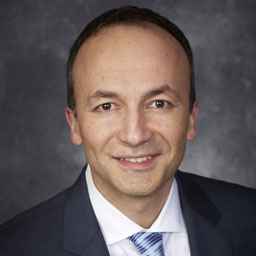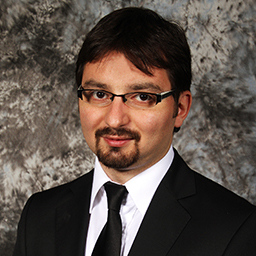

By securing an undisclosed amount of funding from one of the nation’s leading healthcare systems to jump-start research into data-driven medical decision making, a Naveen Jindal School of Management professor has once again strengthened the reputation of the school and UT Dallas as go-to partners for innovation at the cutting edge of the changing global economy.
Dr. Özalp Özer, Ashbel Smith Professor of Operations Management, will collaborate with University Hospitals of Cleveland to develop technology that can more easily extract valuable information from electronic medical records. The goal is to help healthcare providers optimize medical decisions that can improve healthcare outcomes for patients while also improving operational efficiencies.
“My premise — and this is something that I’ve done all along in my research,” Özer said, “is to say that technology has no value if you do not know how to make best use of the information that it generates.”
Özer expects to spearhead a long-term, mutually beneficial collaboration with UH that will advance scholarly inquiry and innovative teaching at the Jindal School, in return providing the world-class, Ohio-based health system with a wealth of intellectual capital that will help forge medicine’s future. The current funding has been earmarked for a specific value chain innovation initiative. The research project involves mining data to develop a more-effective algorithm that will alert physicians and nurses in real time when life-threatening conditions arise during care.
A team of head nurses, physicians as well as the chief innovation officer and chief quality officer of UH will work with Özer and Dr. Mehmet Ayvaci, a JSOM assistant professor of information systems, on further attempt to navigate the intersection of technology and medicine. Although decision-support technologies as alerting tools exist, the key to their effectiveness is their ability to reduce nuisance alert notifications while improving alert accuracy. The research team’s goal is to successfully walk that fine line.
“We are at the beginning of this collaboration but look forward to growing it to a larger scale,” Özer said. “I will lead these initiatives but will also lead PhD students and faculty who are interested in collaborating on a long-term project that will bring together strong minds to address important and timely issues that are faced in healthcare.”
Perhaps one of the primary outcomes that Özer envisions from his research project is the modernization of current healthcare operations, which he compares to manufacturing operations in the 1960s and 1970s.
“Essentially, when you bring data-driven decision making and optimization into any environment, things improve,” Özer said. “I’ve seen many MDs taking business courses and trying to understand healthcare operations from the perspective of business. Optimizing healthcare operations from this perspective will have a direct impact on the healthcare industry in terms of reducing costs and saving lives.”






